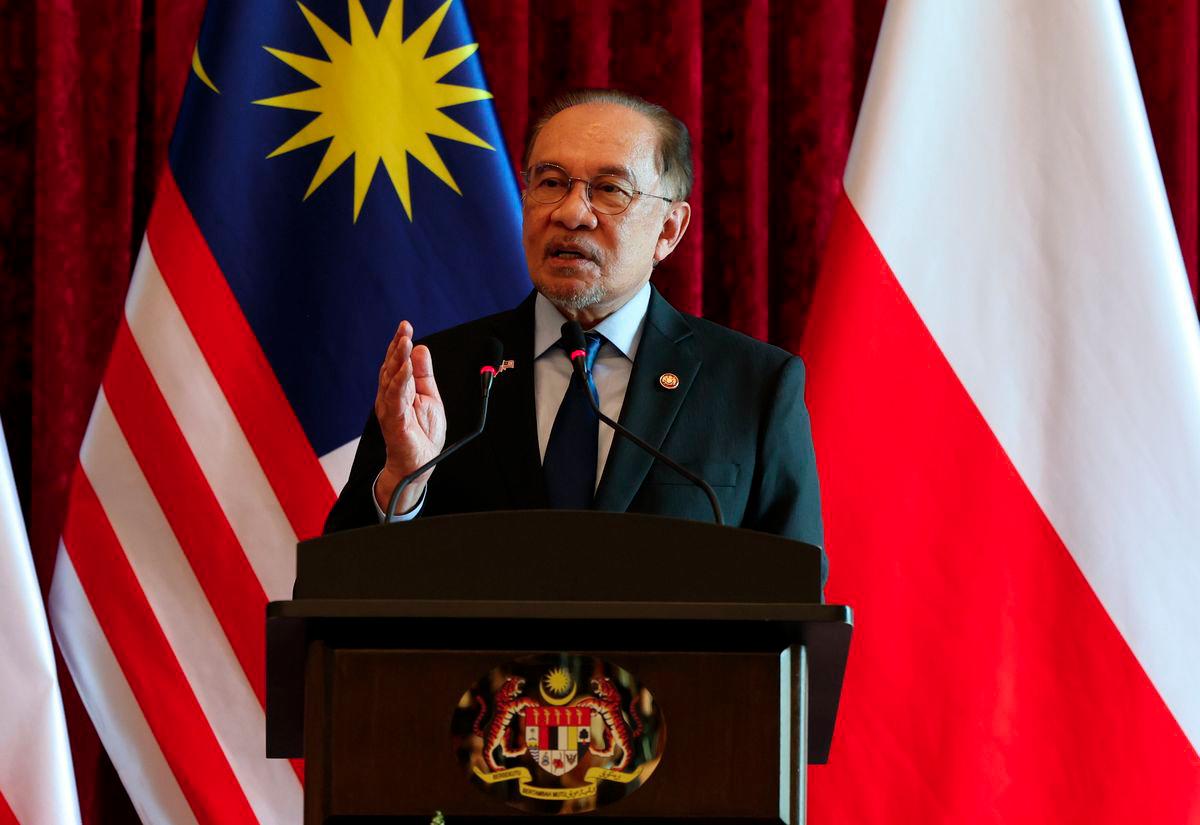KUALA LUMPUR: Prime Minister Datuk Seri Anwar Ibrahim says the MADANI unity government is deeply committed to tackling corruption and abuse of power but the reforms to combat these menaces will take time to materialise.
“There’s no turning back. What I am certain is that every month and every year there must be some progression in addressing these issues,” he said.
Anwar, who is also Finance Minister, said there are those who are impatient and want reforms fast, but they are “blinded to the facts and reality.”
He said there must be wisdom (hikmah) in the way the MADANI government goes about undertaking such reforms.
He cited how Pakatan Harapan does not even have a simple majority in Parliament, which is why as a coalition government, “we have to work together.”
“And we are fortunate, because UMNO and Barisan Nasional have now turned to be one of the core pillars committed to this reform and support,” he said in his keynote address at the launch of the Centre of Excellence for Research and Innovation in Islamic Economics (i-RISE) here today.
“But you can’t take things for granted, because the process of negotiations, discussions and engagement is important,” he said.
He said it is vital to work gradually and get the consensus between the key parties including those from Sabah and Sarawak.
He also highlighted that proper governance is essential to ensure economic growth and progress whether a country practices Islamic or conventional banking or both banking systems like in Malaysia.
He said that there should be sustainability and clarity in a country’s macroeconomic policies and in governance which promotes development but avoids financial leakages and endemic corruption.
“Almost without exception, Muslim countries are not poor, but the poverty is because of the tendency to either condone and use power and privilege to squander wealth,” he said.
He also lamented over gender poverty in Muslim countries, but said Malaysia is fortunate as the problem is relatively absent.
He said that the MADANI unity government remains committed to support studies and research and allow Islamic economics and Islamic instruments to be practiced, supported and expanded.
To this end, he called on bankers, academicians, intellectuals, scholars, professionals and Islamic scholars “not to ignore the importance of what proper and good governance entails” when undertaking reforms in related disciplines.
“Through good governance with clear policies and instruments, institutions must protect the system from excesses,” said Anwar.
In this way, the country would grow and possess the capacity to attract foreign direct investments and penetrate new markets as a trading nation.
He described the global halal industry as having massive potential of up to US$3 trillion (US$1 = RM4.23), but said this means nothing if “you don’t engage, penetrate and expand into new markets.”
On an encouraging note, he said, Malaysia has emerged as a major centre of halal certification envied by other countries wanting to learn and share its expertise, which in the process would help develop linkages with halal ventures globally.









